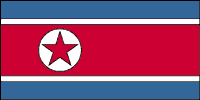North Korea and Japan talks on abduction, opening of relations, finish without consent
North Korea and Japan on Wednesday ended five days of high-level talks aimed at establishing diplomatic relations without any formal agreements, citing major differences on key issues including the abductions Japanese nationals by the North. Both sides agreed to meet again for another round of discussions to "narrow our differences," Song Il Ho, the North's chief representative said after a 30-minute session to wrap up the talks, which began in Beijing on Saturday. They are the highest-level contacts in three years about possible diplomatic ties between the two. No date has been set for the next round, Song said.

"For the last five days we discussed the issue of normalization, abductions and security," he said. "We got to know each other's positions more clearly. At the same time, however, we discovered that there's a big difference of opinion."
The abduction dispute has proven to be the most contentious, with two meetings held on the issue during the current round of talks but no reported breakthroughs.
"One achievement of the dialogue is that we were able to make clear our concerns and demands to the North Korean side," Chief Cabinet Secretary Shinzo Abe said in Tokyo . "However, as for the abduction issue, the North Korean side unfortunately did not respond to our demands. I find this extremely regrettable."
Japan has been pushing for information on Japanese who were abducted by the North's agents in the 1970s and '80s. The North in 2002 acknowledged abducting 13 Japanese and allowed five to return home. It said the other eight were dead, but Japan is demanding proof.
Negotiators have also been discussing whether North Koreans who were involved with the kidnappings will be brought to justice.
On Tuesday, the North said it wants Japan to hand over members of Rescue the North Korean People, a Japanese-based activist group. But it wasn't clear whether the North was making that a condition of forming diplomatic relations.
The North Koreans also demanded the return of the remains of Megumi Yokota, a Japanese woman who the North said was abducted by its agents. Japan says tests showed the remains handed over earlier weren't those of Yokota.
Envoys also talked about the North's nuclear and missile programs, possible reparations by Japan for its 1910-45 colonial rule of the Korean Peninsula and the return of cultural relics.
Japanese alarm at the North's missile program has mounted since it shocked Tokyo in 1998 by firing a missile over northern Japan . It has since conducted several tests on short-range missiles, especially during heightened tensions over its nuclear weapons program.
Japanese officials in Tokyo said Tuesday that Pyongyang reiterated that it will not return to six-nation disarmament talks hosted by China unless the United States ends its economic sanctions against the North.
Beijing has been trying to restart the talks, which also involve Japan , South Korea and Russia .
North Korea pledged in September to give up its nuclear programs in exchange for aid and security assurances. But progress has stalled since then, in part because of North Korean anger over financial restrictions that Washington imposed over alleged North Korean counterfeiting and weapons proliferation, reports the AP.
D.M.
Subscribe to Pravda.Ru Telegram channel, Facebook, RSS!





